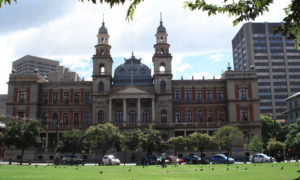 A South African court has dismissed an application by the Fair-Trade Independent Tobacco Association (FITA) to reverse the government ban on the sale of tobacco, including vapour products, in the country following the outbreak of COVID-19.
A South African court has dismissed an application by the Fair-Trade Independent Tobacco Association (FITA) to reverse the government ban on the sale of tobacco, including vapour products, in the country following the outbreak of COVID-19.
The judgement by the Pretoria High Court defends the political action taken by the government and denies FITA’s claim to consider tobacco products “essential goods”.
“The fact that a substance is addictive does not render it essential. We, therefore, find no basis on which to interpret the level five regulations as permitting the sale of tobacco products,” reads the judgement.
Many products and services, the court said, were prohibited during the lockdown period insofar as they were defined as non-essential and many industries were restricted as a goal of curbing and managing the pandemic.
“Differential or preferential treatment for tobacco products and or the tobacco industry cannot be countenanced as tobacco products were simply not considered to be essential,” it said.
Disappointment
FITA’s chairman Sinenhlanhla Mnguni told TobaccoIntelligence that the association was disappointed by the ruling.
“We are studying the judgement and consulting with our legal representatives with a view to possibly appealing the ruling. We will notify the public once we are ready to make further announcements on this issue,” Mnguni said.
The FITA court challenge followed the announcement in late March by the South African government to ban the sale of tobacco products and alcohol as part of the country’s national lockdown measures to curtail the spread of COVID-19.
Announcing the ban, Nkosazana Dlamini-Zuma, South Africa’s minister of cooperative governance, argued that besides the effects of tobacco on a smoker’s lungs there were concerns that smoking could promote coronavirus infection.
What This Means: Although nationwide lockdown in South Africa was eased a few days ago, the ban on the sale of cigarettes is still in effect.
The Research Unit on the Economics of Excisable Products (REEP) conducted an online survey with 16,000 smokers which found that the tobacco sales ban had created a boom in the black market, dominated by locally manufactured brands. About 16% of respondents had successfully quit smoking during the lockdown.
– Andrew Mambondiyani TobaccoIntelligence contributing writer
Photo: Wikimedia Commons







